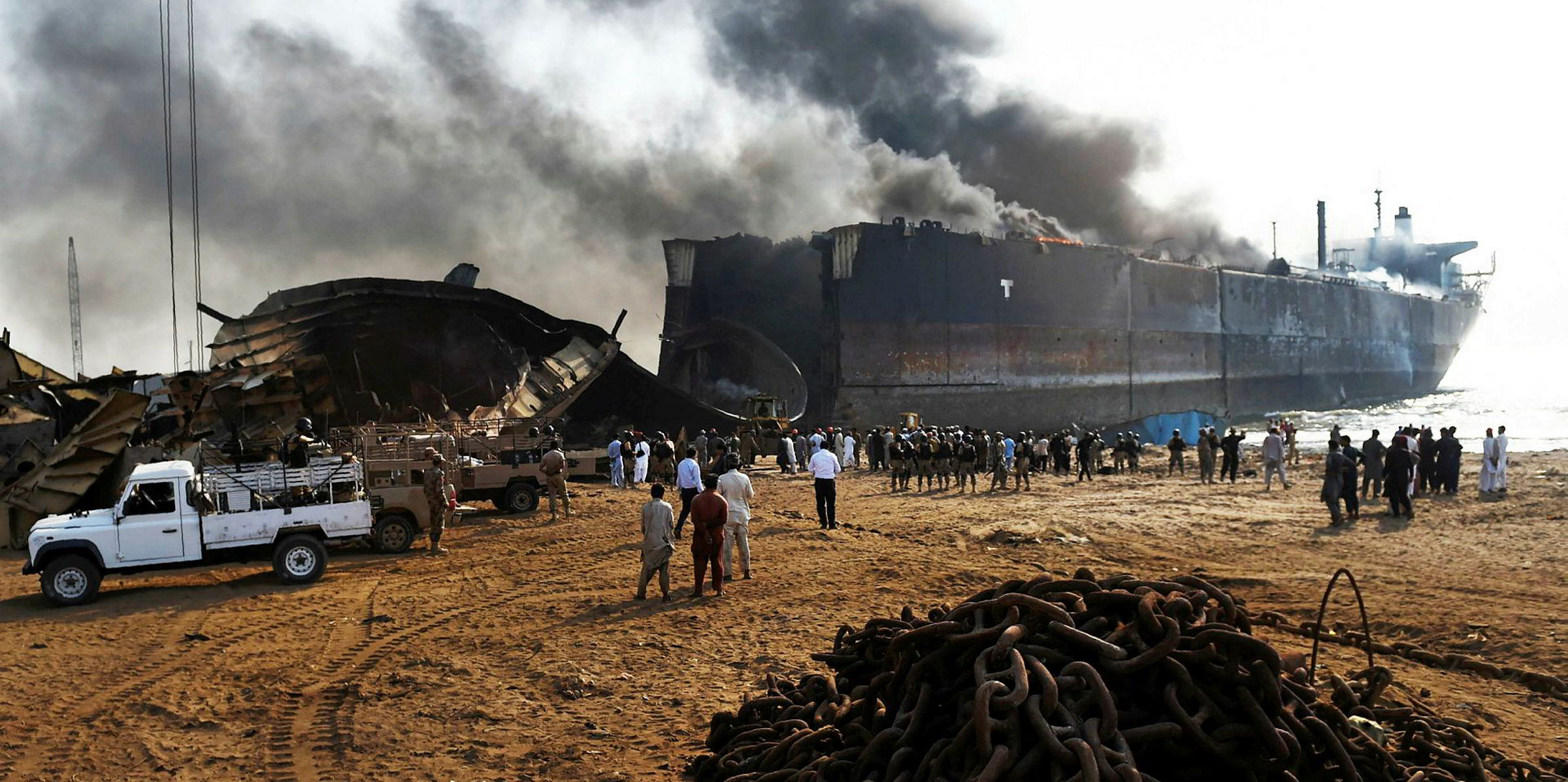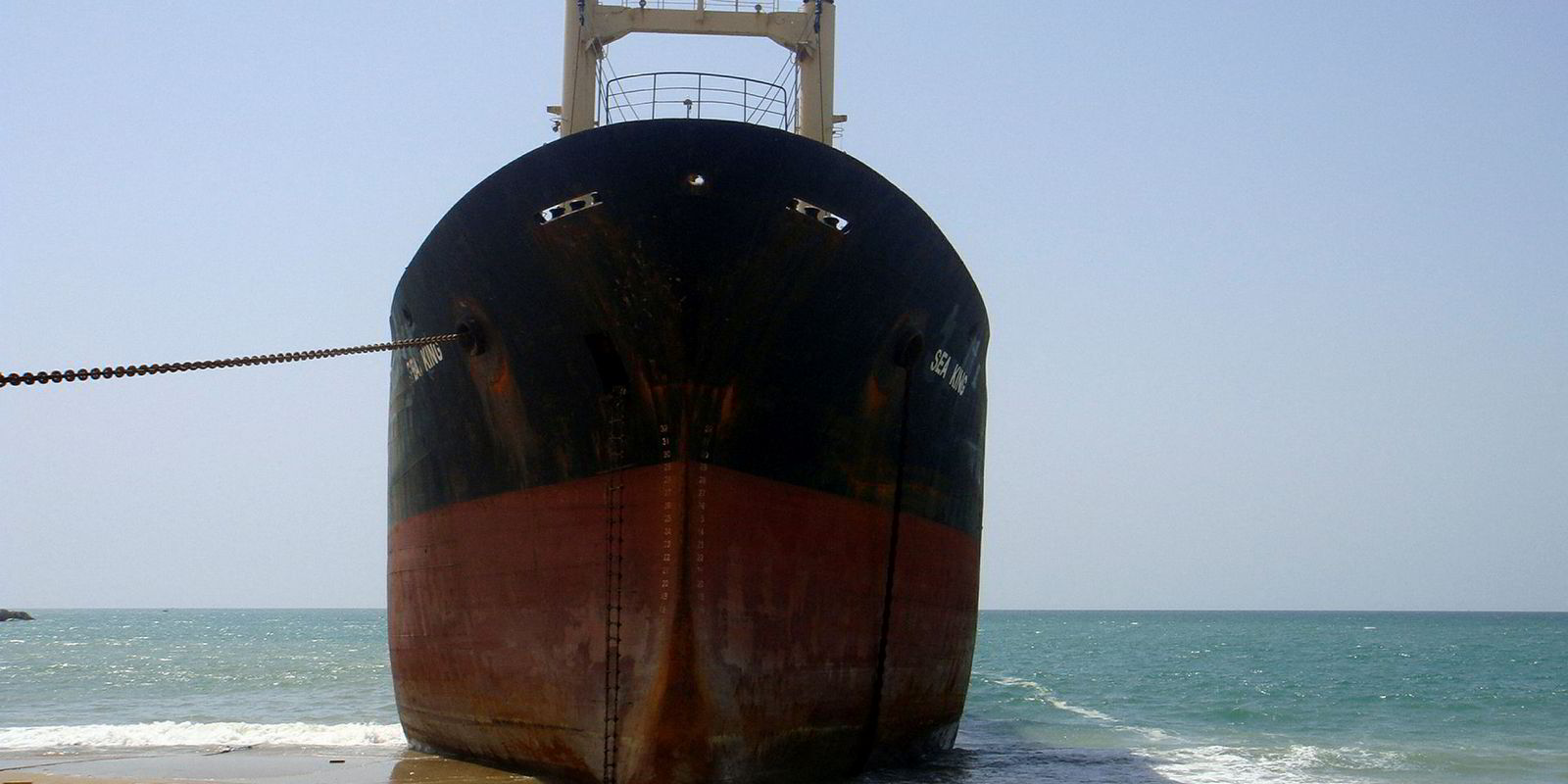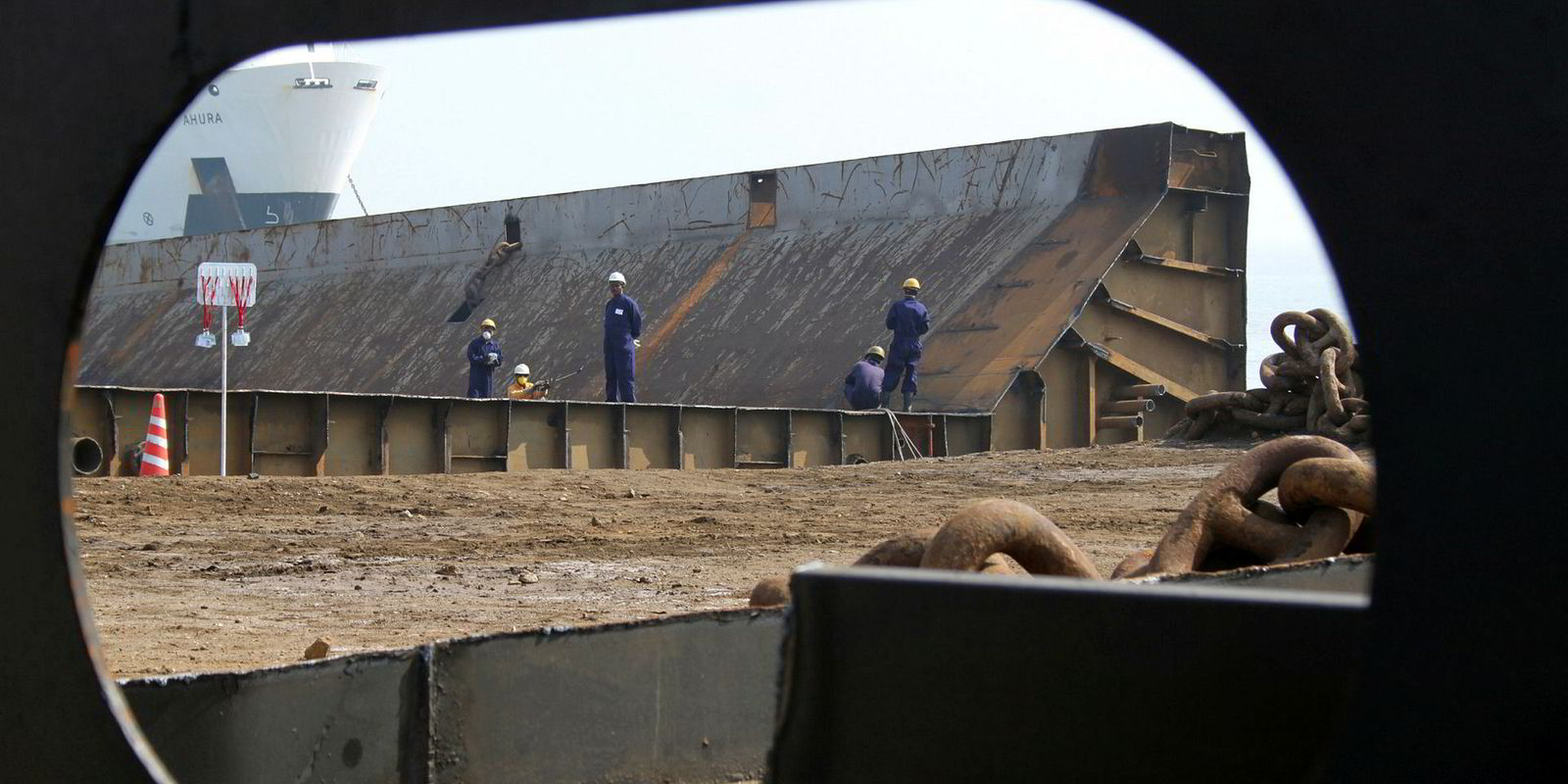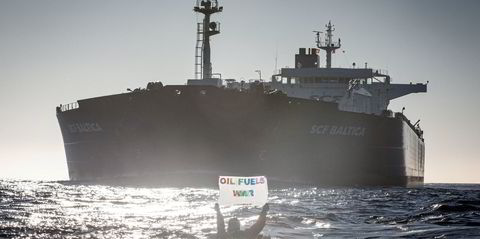Pakistan has returned to the tanker demolition market for the first time in 18 months, with rumours of its first deals in the works as TradeWinds went to press this week.
Market sources suggested a VLCC and an aframax were being developed for sale in deals with Gadani recyclers.
Shipbrokers told TradeWinds there are at least five VLCC demolition candidates in the market presently. This would add to the 21 sold for demolition so far this year, according to data from Euronav this week.
Should the momentum continue, the record of 25 VLCCs and suezmaxes scrapped in the first half of 2003 will probably be beaten.
Euronav chief executive Paddy Rodgers said: “With Pakistan once again open for recycling, there is additional capacity and consequently attractive pricing for owners with older tonnage who otherwise face negative cash flow and regulatory pressure to invest capital in 2019 and 2020.”
TradeWinds reported last week that tankers could begin beaching in Pakistan in the coming weeks after a reopening of its demolition market for wet tonnage.
A fire on the 149,000-dwt suezmax Aces (built 1992) at Gadani that claimed 18 yard workers' lives in November 2016 led to the ban on tanker imports.
The final signatories on a document to reopen the market arrived in the past week, with new documentation clearly specifying the required process for demolishing oil, chemical and gas carriers in the country.
A key stipulation is that certificates for gas-free hot works must be secured before the ship enters Pakistan’s territorial waters. It also requires inspections by environmental protection and customs before beaching, with further restrictions on gas cutting, and numerous health and safety requirements.
“In theory, it does indeed look as though the announcement is most definitely working in the direction of ensuring that there is a fully safe and sound recycling procedure in place,” demolition expert Ed McIlvaney said.
Boosting competition
Brokers at Allied said the re-emergence of Pakistan would boost competition and ease pressure on the market, given the stockpile of tankers for sale. However, they added, it will take a few weeks for a true impact on pricing to play through.
Early signs are that the Pakistani breakers feel they have the upper hand in negotiations.
Cash buyer GMS said end users had been looking for cheap units with what it termed lowball offers, taking advantage of Bangladesh being out of the game and India being uncompetitive on tankers.
“The only thing that is clear at the moment is that the cash buyers holding tonnage who hoped that Pakistan would immediately boost the prices are finding that their high objectives are not being met by the end receivers,” McIlvaney said.
He noted that there is serious interest among Pakistan’s shipbreakers for tankers. But they are mostly being offered ships from stockpiles rather than ships new to the market, and the breakers hold the higher ground in negotiations.
“We would expect this situation to remain for a few weeks yet, with a likely slow increase in prices as Ramadan approaches and, of course, prior to the start of the monsoon season,” he said.
Prices of $430 to $440 per ldt for VLCCs have been suggested in Pakistan, with other tankers likely to fetch slightly more.






